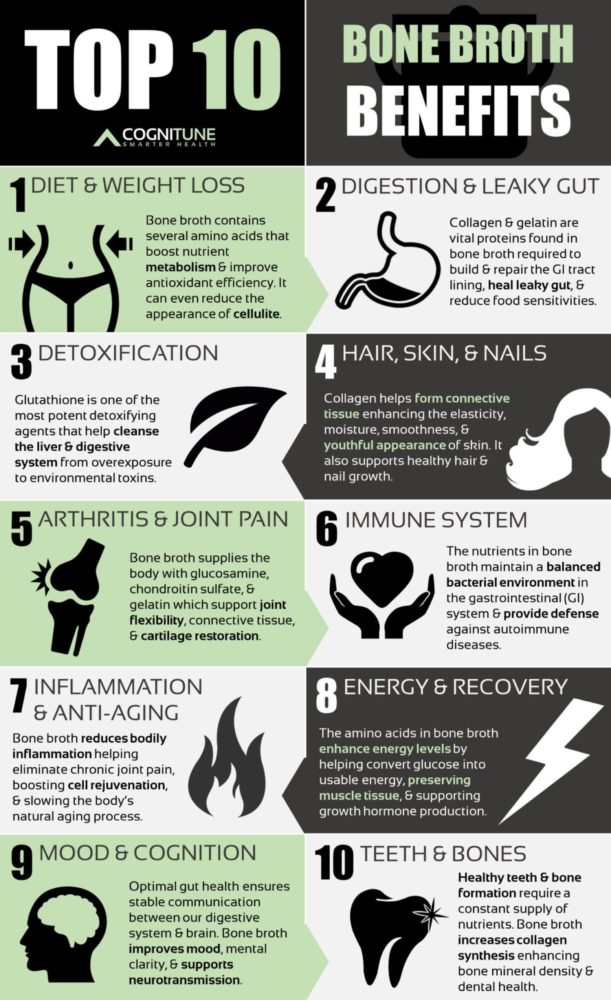Of all the products we produce on our farm in Stellenbosch, the most popular is our bone broth. I ascribe this to the fact that it’s the most nutritious. There is also a growing awareness that this ancient elixir is medicine.
What are the benefits of bone broth?

Bone broth benefits, COGNITUNE LLC
Bone broth has been linked to curing infectious diseases, auto-immune disorders, digestive problems and many other chronic ailments. This is for many reasons – primarily because it is the storehouse of collagen, but also because of the various properties in cartilage, bone and bone marrow. It contains all nine of the conditionally essential amino acids that form the necessary building blocks of protein, which in turn are also the building blocks of the body. Want to boost your collagen naturally? Click on the link to find out how.
A word on the bones used in the broth (before explaining what it takes to make our bone broth): more than 99% of the beef market is feedlot beef. This means the animals have been raised on an unnatural diet, violating their digestive systems and causing their meat and bones to be too high in Omega-6 – ultimately making it inflammatory.
Our bone broth is made in our own farm butchery. We use rainwater that has been UV-filtered and alkalized, grass-fed beef bones from our cattle, organic vegetables, non-irradiated herbs and spices (no salt), vinegar and – last but not least – love. To start, it’s very important to soak the bones in the water and vinegar for at least two hours prior to being heated. This ensures maximum mineral extraction. After adding the vegetables and herbs, we cook the broth for 44 hours at 85 °C, to allow the long chains in the proteins to remain intact. If the broth you buy, or make, is not gelatinous once it has cooled, it’s good to feed your pets, but not you. If it’s too gelatinous, it’s an indication that all the nutrients I referred to above are there. Chicken broth will be a lot less gelatinous, as the animals are younger than pigs or cattle. Some clients ask: “Why bother with broth when you can eat the meat?” The answer is simple: the bones are far more densely packed with nutrients.
How often should one drink it?
As to the recommended consumption of bone broth, I can only tell you what we do at home and what our clients do. We drink it neat, between 100ml and 200ml, and we try to have it four times a week. Some clients add parsley, others add some salt, and some prefer eating it like jelly, directly from the fridge. It’s also widely used as a base for soups and risottos. If you’re looking for inspiration, the best book I have found on broth is called Nourishing Broth by Sally Fallon. Additionally, bone broth also comes in the form of supplements, and that also helps to provide a wide range of health benefits.
As always, you’re welcome to visit us on the farm at any time. The discussion is focused on how regenerative agriculture can heal the soil = which, in turn, heals society – and how you can be an active participant in this crucial process.
Angus McIntosh is a biodynamic farmer based in Stellenbosch. To follow him on Twitter, click on the following link.



![women [longevity live]](https://longevitylive.com/wp-content/uploads/2020/01/photo-of-women-walking-down-the-street-1116984-100x100.jpg)










